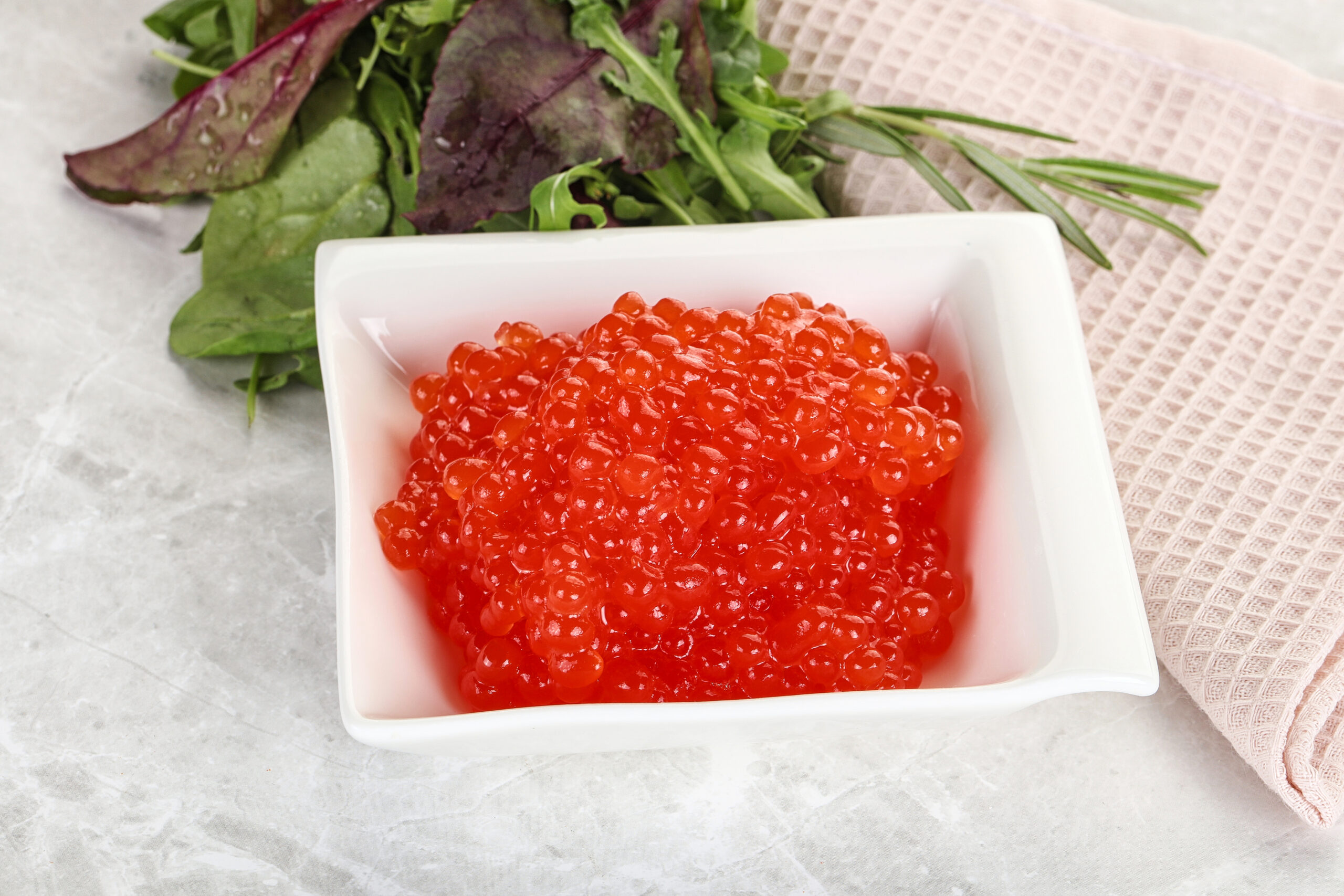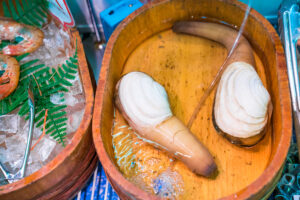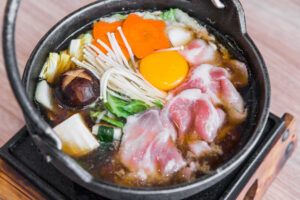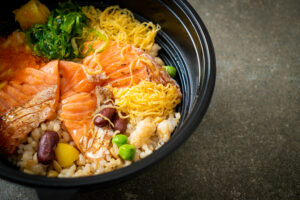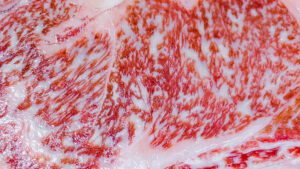In the pantheon of Japanese cuisine, few delicacies shine as brightly as Ikura. Known for its rich, opulent taste and jewel-like appearance, Ikura has transcended its origins to become a global phenomenon in the culinary world. This article delves into the essence of Ikura, tracing its historical roots, exploring its culinary uses, and examining its modern-day significance. From traditional dishes to innovative culinary creations, we uncover the allure of this exquisite ingredient, providing insights into why Ikura continues to captivate the palates of food enthusiasts around the world.
The Rise of Ikura in Global Cuisine
Once a well-kept secret within the borders of Japan, Ikura has emerged as a coveted ingredient in kitchens and dining tables worldwide. The globalization of Japanese cuisine, paired with the growing interest in international gastronomy, has propelled Ikura to the forefront of culinary luxury. Chefs across the globe are now incorporating this vibrant delicacy into a variety of dishes, elevating their menus with its unique flavor profile. Food festivals and culinary competitions often feature Ikura, highlighting its versatility and appeal to a wide audience. The rise of social media has further amplified its popularity, with images of Ikura-topped dishes becoming a common sight on platforms like Instagram, making it a symbol of culinary sophistication.
Ikura: Understanding the Basics
Ikura, the Japanese term for salmon roe, refers to the eggs of the salmon fish, meticulously cured in a brine solution. The process enhances their natural, salty taste and transforms the texture into a delicate burst of flavor with each bite. The eggs themselves are a sight to behold, with their translucent, reddish-orange hue and spherical shape. Traditionally served atop a bed of rice or tucked within sushi rolls, Ikura is savored for its rich, oceanic flavor that embodies the essence of the sea. Its nutritional profile, packed with omega-3 fatty acids, vitamins, and minerals, adds another layer of appeal, making it a favorite among health-conscious diners.
The Historical Journey of Ikura
Ikura’s journey from a staple in the Japanese diet to an international delicacy is a tale steeped in tradition and innovation. Historically, the consumption of fish roe was prevalent in various cultures, but it was in Japan where the preparation and preservation techniques were refined to perfection. The practice of salting and curing salmon eggs, thereby transforming them into Ikura, dates back several centuries. Initially, it was a method to preserve the roe for off-season consumption. Over time, it evolved into a culinary art form, with regional variations and techniques contributing to the nuanced flavors that Ikura is known for today.
Decoding the Making of Ikura
The process of making Ikura is both an art and a science. It begins with the careful selection of high-quality salmon roe, which is then gently washed to remove any impurities. The roe is soaked in a brine solution, a critical step that cures the eggs and imparts a delicate balance of saltiness. The duration of the curing process varies, influencing the texture and flavor intensity of the final product. Once cured, the Ikura is drained and lightly rinsed before being stored at cool temperatures to maintain its freshness and vibrant color. This meticulous process ensures that each bead of Ikura bursts with flavor, encapsulating the essence of the sea.
The Nutritional Value of Ikura
Ikura is not only prized for its exquisite taste and texture but also for its impressive nutritional benefits. Rich in omega-3 fatty acids, it plays a vital role in heart health and cognitive function. Additionally, Ikura is a good source of vitamins A, D, and B12, along with minerals such as selenium and phosphorus. These nutrients contribute to a healthy immune system, bone health, and energy metabolism. The high protein content in Ikura, coupled with its low carbohydrate profile, makes it an excellent dietary choice for those seeking to maintain a balanced diet. Its nutritional value, combined with its luxurious taste, makes Ikura a jewel in the crown of Japanese cuisine.
Ikura in Traditional Japanese Dishes
In Japanese cuisine, Ikura is celebrated for its versatility and is a key component in a variety of traditional dishes. It is perhaps most famously served as nigiri sushi, gently laid atop a bed of vinegared rice, enveloped in a thin strip of seaweed. Another classic preparation is Ikura don, a hearty rice bowl dish where the roe serves as the crowning jewel. Additionally, Ikura often makes an appearance in celebratory meals and New Year’s dishes, symbolizing prosperity and joy. The traditional way of enjoying Ikura, with its simplicity and emphasis on enhancing the roe’s natural flavors, continues to be a testament to the ingredient’s revered status in Japanese gastronomy.
The Art of Pairing Ikura with Other Foods
The rich, umami-laden flavor of Ikura makes it an excellent candidate for food pairings, offering a counterbalance to a variety of ingredients. Its salty-sweet profile complements the creaminess of avocado and the subtle sweetness of Japanese rice. When paired with crisp cucumber or radish, Ikura’s texture becomes even more pronounced. In contemporary cuisine, chefs have been adventurous, incorporating Ikura with unconventional partners like burrata cheese or atop crispy potato chips, creating a fusion of flavors that surprise and delight. The key to successfully pairing Ikura lies in balancing its potent taste with complementary textures and flavors, ensuring that each component shines.
Sustainability and Ikura: A Modern Concern
As the demand for Ikura grows, so does the concern for sustainable practices in its production. Overfishing and ecological disruption are pressing issues facing the salmon industry. Conscious of these challenges, producers and chefs alike are turning towards more sustainable sources of salmon roe, including farm-raised salmon and initiatives aimed at preserving wild salmon populations. Transparent labeling and certification programs have also become more prevalent, allowing consumers to make informed choices about the origins of their Ikura. By supporting sustainable practices, consumers can enjoy Ikura while contributing to the health of the world’s oceans.
The Price of Luxury: Costing Ikura
The process of producing high-quality Ikura, combined with its growing demand, contributes to its status as a luxury item. Prices can vary widely, influenced by factors such as the source of the salmon, the method of curing, and the grade of the roe. Premium Ikura, characterized by its larger eggs and enhanced flavor profile, commands a higher price in both domestic and international markets. For many enthusiasts, the cost is justified by the rich sensory experience Ikura provides, making it a sought-after ingredient for special occasions and gourmet dining.
Ikura at Home: Tips for Enjoying
Enjoying Ikura at home can elevate a simple meal to a gourmet experience. When purchasing Ikura, look for freshness indicators such as a bright color and a firm, glossy appearance. Proper storage is key; Ikura should be kept refrigerated and consumed within a few days of purchase. For a simple yet elegant appetizer, serve Ikura on blinis or crackers with a dollop of crème fraîche. It can also be lightly seasoned with soy sauce and served over warm rice for a comforting dish. Experimenting with Ikura in various recipes can unlock new flavors and textures, adding a luxurious touch to home-cooked meals.
Culinary Innovations: Modern Takes on Ikura
The culinary world continues to innovate, and Ikura is at the forefront of this evolution. Chefs are pushing the boundaries, incorporating Ikura into dishes well beyond the confines of traditional Japanese cuisine. From Ikura-topped pizzas to incorporating it into molecular gastronomy creations, the possibilities are endless. These modern interpretations celebrate the versatility of Ikura, introducing it to new audiences and challenging conventional expectations. As culinary techniques evolve, Ikura remains a timeless ingredient, adaptable and enduring in its appeal.
Where to Find the Best Ikura Globally
Seeking out the best Ikura can be a delightful journey for gourmands around the world. In Japan, Tokyo’s Tsukiji Market is renowned for offering some of the finest selections of fresh Ikura. Outside of Japan, cities with strong Japanese culinary traditions, such as New York, San Francisco, and Vancouver, boast restaurants and specialty stores where top-quality Ikura can be savored. Additionally, online gourmet food retailers have made it easier for Ikura enthusiasts to procure premium roe from reputable sources, delivering the luxury of Ikura right to their doors. Regardless of where you find it, the key to enjoying the best Ikura lies in selecting fresh, sustainably sourced options that promise an unforgettable taste experience.
Ikura, with its rich history, luxurious taste, and nutritional benefits, continues to reign as a jewel of Japanese cuisine and a beloved ingredient worldwide. As it finds its way into an array of traditional and innovative dishes, Ikura’s appeal only grows, transcending cultural and culinary boundaries. Whether enjoyed in a simple, traditional preparation or as part of a modern culinary creation, Ikura offers a unique experience that is both indulgent and nourishing. As we embrace sustainable practices and explore new ways to savor this exquisite delicacy, Ikura’s journey from the depths of the ocean to the heights of gastronomy is a testament to its enduring allure and versatility.
